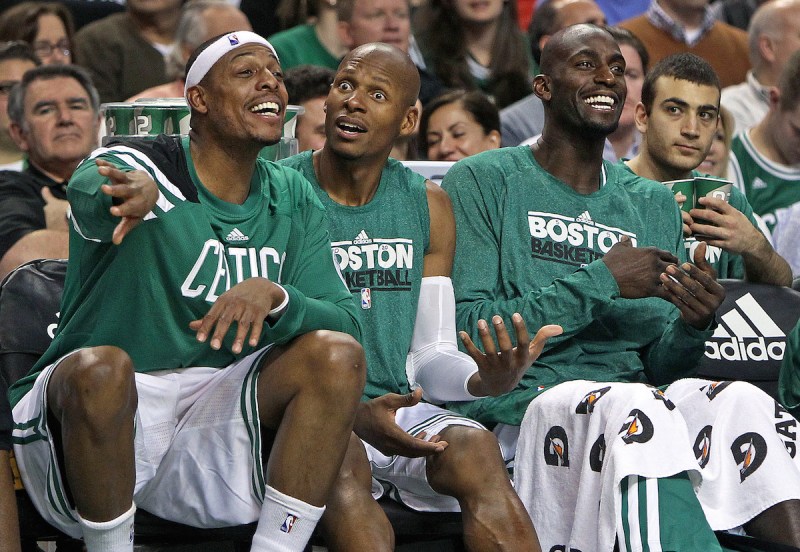
This year, all fans will be focused on Kevin Durant joining Steph, Klay, and Draymond on the Golden State Warriors, who got off to a less than rousing start by being absolutely destroyed by the Spurs in their season opener. Last season, it was LeBron James and Kevin Love teaming with Kyrie Irving in Cleveland. (Of course, LeBron’s return to Cleveland was only possible because he had previously fled to Miami, where he met up with Dwyane Wade and Chris Bosh.)
The fact is, NBA elites have been coming together for years, with decidedly mixed results. As the new season begins, here are some teams that merged magically—think Boston’s Paul Pierce discovering Kevin Garnett and Ray Allen had suddenly become Celtics in 2007, and the Big Three promptly winning a title together—as well as a few that should’ve stayed apart.
1982: Moses Malone Joins the 76ers
What Happened: Led by Julius Erving, Philadelphia had lost in the NBA Finals in 1982, at which point they added one of the all-time great centers, Moses Malone. This time they would not be denied, with Malone’s “Four, four, four” prediction damn near coming true. (They had two sweeps and won the other series in five.)
High Point: The title in 1983.
Low Point: It fell apart amazingly quickly, as they lost in the first round to the Nets the next season and never returned to the finals, even after they were joined by a gifted (if overweight) rookie named Charles Barkley in 1984.
2003: Karl Malone and Gary Payton Become Lakers
What Happened: Shaquille O’Neal and Kobe Bryant had already won three titles together under coach Phil Jackson, so adding two future Hall of Famers would have seemed to make the team a lock. A sexual assault trial of Bryant, however, ensured that their time together was never less than bizarre.
High Point: Managed to make the NBA Finals in 2004, before losing to the Pistons.
Low Point: Malone retired after that single season; and O’Neal, Payton, and Jackson all left the Lakers in the offseason. With the team suddenly his and his alone, Kobe’s Lakers failed to make the playoffs.
2010: LeBron James and Chris Bosh Take Their Talents to Miami
What Happened: Dwyane Wade (who’d already won a title) suddenly had some super friends.
High Point: Okay, no one will ever forget LeBron’s “not three, not four …” title prediction (which they obviously failed to meet), but still, back-to-back championships ain’t that bad.
Low Point: LeBron’s return home to Cleveland brought a run of four finals’ appearances in four seasons, jarringly, to an end.
2012: Dwight Howard and Steve Nash Briefly Become Lakers
What Happened: Kobe Bryant and Pau Gasol, who’d already won two titles together, suddenly had as teammates a three-time Defensive Player of the Year and a two-time MVP.
High Point: None.
Low Point: Nash was physically no longer capable of playing at an All-Star level—or, most of the time, even playing. Howard bolted after a single season, and Gasol eventually left too, leaving Bryant’s Lakers to average about 22 wins a season over the brutal final three seasons of his career.
Whether you’re looking to get into shape, or just get out of a funk, The Charge has got you covered. Sign up for our new wellness newsletter today.